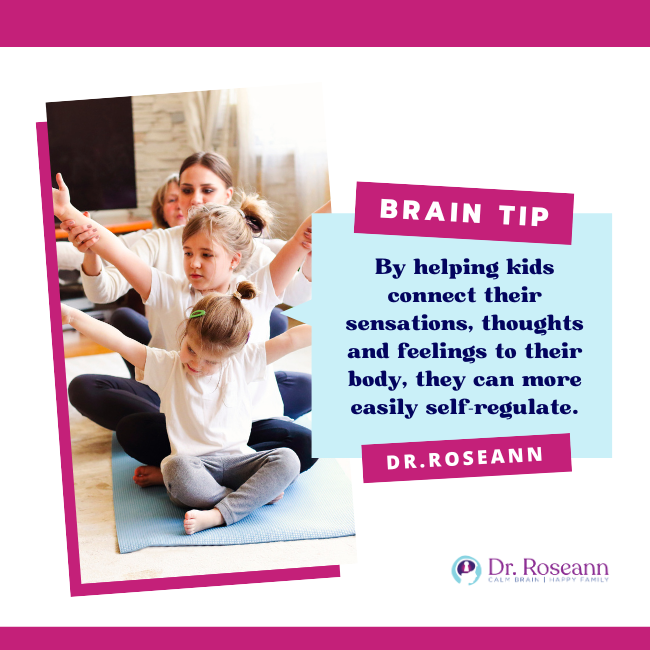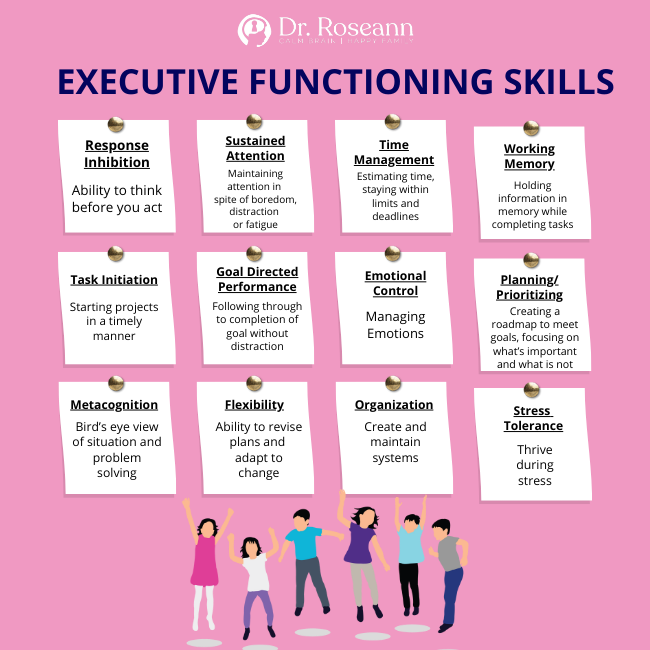When people think of therapy, they often think there has to be a “big” issue before seeking support and advice. That simply isn’t the case. Therapy is about learning – for kids and parents. Think of it like a special education about finding the best tools to support your child’s ability to thrive and be happy at home and school.
Special needs children, whether it is Attention Deficit Hyperactivity Disorder, Autism Spectrum Disorder, Dyslexia, behavioral issues, health issues, anxiety, or depression, need as much proactive support as they can to be ready for the increased challenges they may face. There are many therapies for learning disabilities and ADHD and traditional counseling is one of them. Here are nine reasons why counseling helps the special needs child.
1. Children Adapt Coping Skills through Behavioral Therapy for Special Needs
Probably the first step and single most important thing any parent can do is to teach their child how to cope with stress. In our fast-paced, intense world, we are living with high stress levels with little downtime.
Today, there is little tolerance for the uncomfortableness that comes with stress. Giving kids, older children, and teens the tools to self-manage uncomfortable feelings is a gift for today and tomorrow. Building frustration tolerance is different for every child.
Some who have a natural stress tolerance have a more “sunny” disposition whereas other children need to develop that skill. Whatever the disposition or skill set, a child can learn healthy coping skills assisted by counseling and related services.
2. Mind-Body Connection Alleviates Stress

One of the most critical ways to learn how to manage stress is to have the ability to make a mind-body connection. We all hold stress in our bodies, and some of us are better at noticing the alerts our bodies give us when our brain is stressed. When we learn to recognize that chest tightening, sweating, or increased heart rate, we need to take a moment and get back in balance.
The next step is for the therapists to instruct children and adults on how to make a mind-body connection with a type of therapy called Somatic Therapy (Shapiro, 2020). This therapy emphasizes tracking sensations through the body and directly teaching how to recognize them, as well as breath work, mindfulness, physical activity, and sometimes healing touch.
3. Self-Regulation Can be Easily Achieved
Many learning disability symptoms result from dysregulation of the Central Nervous System (CNS) thus impacting behavioral and emotional regulation. When children or teens get into a pattern of overreacting to situations, people, or stimuli, they find breaking that pattern very hard without direct therapeutic support.
Neurobiological reasons for self-regulation difficulties are often confused with learning disability symptoms. Occupational therapists who work with special needs children are trained to not only support the children and teens but also teach parents how to manage the behaviors that come along with self-regulation issues. A therapist can help children and parents gain the needed tools to change family dynamics and create healthy behaviors.
4. Improved Executive Functioning with Special Needs Therapy
Most often, a learning disability diagnosis such as ADHD arises out of executive function issues (Jakobson & Kikas, 2007). Some individuals have a natural ability to focus and organize easily, and others do not. The brain’s frontal lobe controls executive functioning skills giving organization and order to our actions and behavior.

Executive functions involve planning for the future, strategic thinking, the ability to inhibit or delay responding, self-regulation, initiating behavior, and shifting between activities flexibly. When kids have issues with executive functioning,they can’t use their brain’s full potential. Everyday activities and tasks that require these skills become a challenge.
Although often considered characteristics of a learning disability, these challenges can be overcome with therapeutic executive function coaching giving people the ability to manage and juggle multiple tasks, orient to their environment differently, and attend better with direct skill set instruction.
5. Learn Social Skills and Social Thinking as Practical Reasons for Therapy
For most, developing and maintaining friendships is a natural process. However, some special needs children and teens can have developmental delays or clinical issues that interfere with their social skills.
Developmental lags can occur in all areas, including social thinking and social functioning, such as initiating a social interaction, maintaining social interactions, or understanding social pragmatics.
Whether it is a clinical issue or a developmental lag, these issues can interfere with their ability to relate to others by inhibiting impulse control with peers making getting along with others or keeping friendships difficult.
It's a good idea to provide direct instruction in the social realm to teach kids how to manage the different components of social interaction and pragmatic language communication. Social thinking and communication skills can be learned with direct guidance and support from a highly trained and skilled therapist in a one-to-one session or group setting.
6. Kids Develop Self-Esteem with Therapy for Special Needs
Children with special needs often aren’t successful in their jobs as a student due to their developmental disabilities. Their physical limitations may include difficulty paying attention, reading, socializing, or a combination of issues that cause low self-esteem and decreased chances of academic success.
Working with a therapist to find different ways to improve feelings of self-worth can make a huge difference and prevent later high-risk behaviors. We want kids to feel good about what they can do and learn to cope with feelings of frustration. Ultimately, for parents of special needs children, it is about ensuring that your child’s or teen’s emotional core is secure.
7. Better Understanding of Strengths and Weaknesses of The Special Needs Child
Because so many tasks can be a challenge for the special needs child, they only see what they can’t do. Counseling is all about understanding all the parts of oneself. For the special needs child, identifying strengths and weaknesses can help them adapt and learn more comfortably.
Validating and explaining the hardships empowers kids. They often know something is wrong, and instead of feeling ashamed, they can feel better by understanding why they struggle. A skilled therapist can provide additional information about what they're going through and help parents harness their children’s strengths and lead with them.
8. Seamless Connection with Emotions for the Special Needs Child
Special needs children, especially teens in high school can have a hard time connecting with their emotions due to stress and anxiety. Therapists help kids, particularly autistic children, put words to emotions so that they can connect with their feelings rather than being overwhelmed by stress. For parents, learning how to support their children with emotional language in a positive manner may not come naturally.
While neurotypical children may be able to pick up emotional language, sometimes special needs children need to be explicitly taught this skill. Counseling can help parents and children learn the language tools necessary to discuss emotions in a way that lessens behavioral responses to stress.
9. Faster Access to Parenting Support When Joining Therapy for Special Needs Parents
Finding the right guidance from a trained therapist, including a speech-language pathologist, to support your special needs child can be invaluable. For some parents, counseling means getting coaching through a tough parenting moment.
For others, it means getting regular help that addresses your child’s needs and clinical issues. Therapists can help parents navigate the hurdles of childhood and adolescence that are often more challenging for the special needs child.
Whether your child has ADHD, a learning disability, or requires educational aids for dyslexia treatment, occupational therapy for young children and family members can help address the underlying causes of a learning disability, executive functioning issue, attentional problem, certain medical problems, or the external stressors the special needs child faces (Handler & Fierson, 2021).
Parent Action Steps
☐ Seek a qualified healthcare provider and request early intervention services.
☐ Support your special needs child's growth and mental health by teaching new skills.
☐ Introduce coping skills to manage stress through therapy sessions.
☐ Learn to use assistive technology to address unique challenges in school.
☐ Help your child recognize the mind-body connection through holistic treatment options.
☐ Develop self-regulation skills to manage your child's behavior and emotions.
☐ Improve executive functioning through therapy to tackle tasks and organization.
☐ Enhance social skills and maintain friendships through targeted therapy.
☐ Boost your child's self-esteem and emotional well-being with therapy.
☐ Empower your child by understanding their strengths and weaknesses.
☐ Help your child connect with their emotions and learn emotional language.
☐ Seek parenting support and guidance from therapists to navigate daily challenges.
☐ Use the Solutions Matcher to get personalized support for your child.
Citations
Handler, S. M., & Fierson, W. M. (2021). Organizational Principles to Guide and Define the Child Health Care System and/or Improve the Health of all Children. American Academy of Pediatrics, 127(3). https://doi.org/10.1542/peds.2010-3670
Jakobson, A., & Kikas, E. (2007). Cognitive Functioning in Children With and Without Attention-Deficit/Hyperactivity Disorder With and Without Comorbid Learning Disabilities. Journal of Learning Disabilities, 40(3), 194–202. https://doi.org/10.1177/00222194070400030101
Shapiro, L. (2020). The Somatic Therapy Workbook: Stress-relieving Exercises for Strengthening the Mind-Body Connection and Sparking Emotional and Physical Healing. Ulysses Press.
Are you looking for SOLUTIONS for your struggling child or teen?
Dr. Roseann and her team are all about science-backed solutions, so you are in the right place!
Grab your complimentary copy of
147 Therapist-Endorsed Self-Regulation Strategies for Children: A Practical Guide for Parents
You can get her books for parents and professionals, including: It’s Gonna Be OK™: Proven Ways to Improve Your Child’s Mental Health, Teletherapy Toolkit™ and Brain Under Attack: A Resource For Parents and Caregivers of Children With PANS, PANDAS, and Autoimmune Encephalopathy.
If you are a business or organization that needs proactive guidance to support employee mental health or an organization looking for a brand representative, check out Dr. Roseann’s professional speaking page to see how we can work together.
Dr. Roseann is a Children’s Mental Health Expert and Licensed Therapist who has been featured in/on hundreds of media outlets including The Mel Robbins Show, CBS, NBC, PIX11 NYC, Today, FORBES, CNN, The New York Times, The Washington Post, Business Insider, Women’s Day, Healthline, CNET, Parade Magazine and PARENTS. FORBES called her, “A thought leader in children’s mental health.”

She coined the terms, “Re-entry panic syndrome” and “eco-anxiety” and is a frequent contributor to media on mental health.
Dr. Roseann Capanna-Hodge has three decades of experience in working with children, teens and their families with attention-deficit hyperactivity disorder (ADHD), autism, concussion, dyslexia and learning disability, anxiety, Obsessive Compulsive Disorder (OCD), depression and mood disorder, Lyme Disease, and PANS/PANDAS using science-backed natural mental health solutions such as supplements, magnesium, nutrition, QEEG Brain maps, neurofeedback, PEMF, psychotherapy and other non-medication approaches.
She is the author of three bestselling books, It’s Gonna Be OK!: Proven Ways to Improve Your Child's Mental Health, The Teletherapy Toolkit, and Brain Under Attack. Dr. Roseann is known for offering a message of hope through science-endorsed methods that promote a calm brain.
Her trademarked BrainBehaviorResetⓇ Program and It’s Gonna be OK!Ⓡ Podcast has been a cornerstone for thousands of parents facing mental health, behavioral or neurodevelopmental challenges.
She is the founder and director of The Global Institute of Children’s Mental Health, Neurotastic™Brain Formulas and Dr. Roseann Capanna-Hodge, LLC. Dr. Roseann is a Board Certified Neurofeedback (BCN) Practitioner, a Board Member of the Northeast Region Biofeedback Society (NRBS), Certified Integrative Mental Health Professional (CIMHP) and an Amen Clinic Certified Brain Health Coach. She is also a member of The International Lyme Disease and Associated Disease Society (ILADS), The American Psychological Association (APA), Anxiety and Depression Association of America (ADAA) National Association of School Psychologists (NASP), International OCD Foundation (IOCDF).
© Roseann-Capanna-Hodge, LLC 2023










